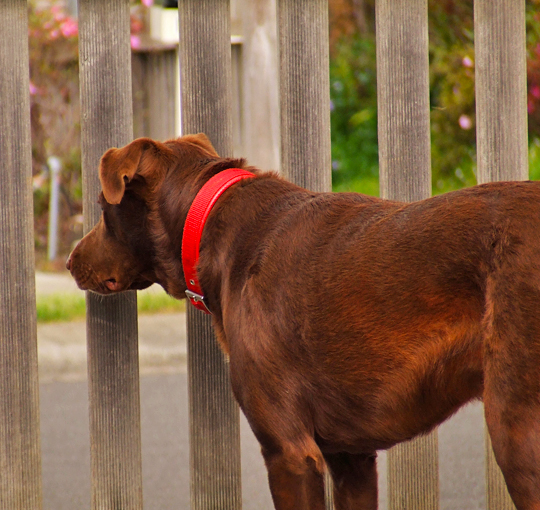McGreevy on A Modern Dog’s Life
This post is part of the McGreevy seminar series. Click here for the index.
McGreevy spoke about some of the demands dogs face in the current era, and explained that these issues are considered in more detail in his book A Modern Dog’s Life.
Basically, McGreevy asks us to appeal to the types of things dogs have to ‘put up with’ in the modern world. The difficulties of dogs in the 21st century are far different to those of their ancestors.

Dogs have to deal with physical barriers in the modern era.
We have co-evolved, so in a way, we exploit each other, and dogs do cope quite well considering what we do to them. For example:
Dogs are expected to get in and out of cars. The car is a noisy machine that suddenly transports dogs to a entirely different destination, in which dogs are then expected to cope with.
Dogs experience man-made boundaries and barriers. There are no doors or fences ‘in the wild’.
Dogs walk on man-made surfaces.
Dogs tolerate us touching them in ways other dogs never would. We touch dogs around the neck. We stare them in the eyes. We hug them.
Clearly, there are hosts of stresses for ‘modern dogs’ that need to be considered in studying dogs. He appealed for applied ethology – ethology that considers human-dog interactions.
This train of thought made me think about the kind of stresses I place on my dogs, without even realising it. I expect my dogs to tolerate me exiting through a door – barriers like this, and ‘pack members’ leaving like this, is quite unnatural. (For the most part) they don’t attack brooms, the poop-scoop, or other items, even though they are normally displeased about their presence. I clip their nails! I keep a bird in a cage that they have to ignore. All really unnatural behaviours that our dogs, by miracle of being dogs, have learnt to deal with.
What have your dogs learnt to deal with, that their ancestors surely didn’t?
This post is part of the McGreevy seminar series. Click here for the index.
